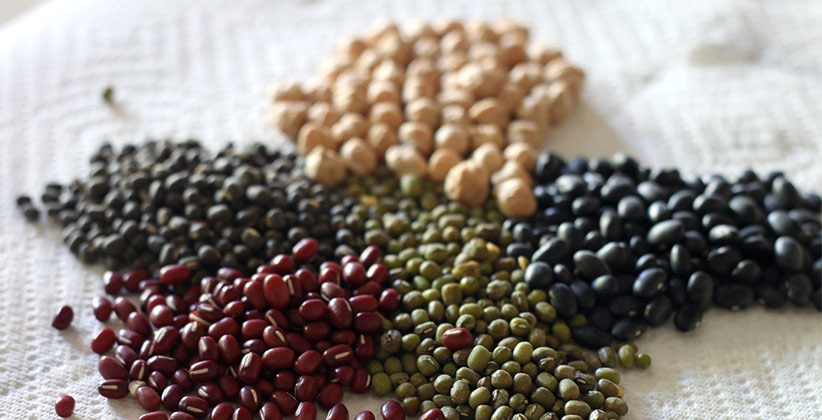
Pulses, which include peas, beans, lentils and chickpeas, are finally beginning to be recognized medically for their extraordinary health benefits.
“Just a single serving a day can cut down on bad cholesterol by as much as five per cent over the course of six weeks and decrease your risk of heart disease”, says Dr. John Sievenpiper from St. Michael’s Hospital, Toronto.
Sievenpiper and his research coordinator Vanessa Ha analyzed more than 3000 studies to test their theories on pulses. Dr Sievenpiper said that they are not considered cholesterol-fighting foods in the same way that “oats, psyllium, barley or nuts have been discovered to be and that so far, the evidence for pulses fighting cholesterol has been quite weak”.
“Pulses are generally considered healthy, but they’re not traditionally part of current guidelines,” Sievenpiper said.
“They have a lot of amazing things in them. They are a whole food, they have wonderful vitamins and minerals – magnesium, calcium, sticky fibres that lower cholesterol, plant protein, a low glycemic index,” Sievenpiper said. Adding pulses to your daily diet could also cut down on trans fats or processed meat because you’re consuming plant protein instead of animal protein.
Sievenpiper and Ha’s work in reviewing these studies has suggested that having 1 single serving or around 3/4 of a cup of pulses a day would lower bad cholesterol (LDL) by around 5%. This is very significant as it means there would be a comparable reduction in heart disease
Sievenpiper hopes that the study will influence the Health Canada and FDA guidelines. These official health organizations can then approve and promote the eating of pulses to people who may be at risk of heart disease. The Doctor believes that Canadians can improve their heart health and lower cholesterol significantly by including beans, legumes, lentils and chickpeas into their diets on a daily basis.
Canadian data suggests that only 13% of Canadians eat pulses on any given day. Canadians would have to more than double their consumption to reach the suggested target. The Canadian Institutes of Health Research funded Sievenpiper’s work and he believes that pulses are a “superfund” and that they offer a variety of different potential benefits.
When asked why Canadians are just not eating pulses Sievenpiper’s thinks it is because pulses are an “unromantic food”. In other words people believe that they cause bloating, flatulence and a general discomfort. This may be true for those who only eat pulses rarely, but it is easily overcome by adding them to your diet regularly.
Adding pulses to your diet will not only improve your health, but they are also inexpensive and your wallet and budget will benefit as well. Canada is also one of the world’s largest producers of pulses. It’s a $2-billion industry and much of it is sent overseas. If Canadians began to use pulses regularly, they would be supporting Canadian farmers, eating locally, improving their health and their budgets.
Looking for a pulse exporter in Canada?Call AdasCan Grain at +1 (416) 548-5901
Extracted from: http://globalnews.ca/news/1254579/why-you-should-eat-more-beans-lentils-and-peas-to-lower-bad-cholesterol/




Comments are closed.